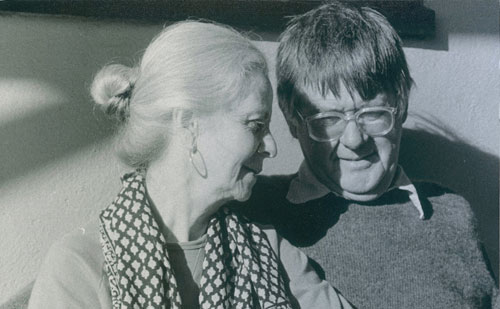Dying Naturally, Without Extreme Measures and Prolonged Suffering

My mother died shortly before her 85th birthday, in a quiet hospital room in Connecticut. One of my brothers was down the hall, calling me in California to say, too late, that it was time to jump on a plane. We were not a perfect family. She did not die a perfect death. But she died a “good-enough” death, thanks to choices she made earlier that seemed brutal at the time.
She slept in her own bed until the night before she died. She was lucid and conscious to the end. She avoided what most fear and many ultimately suffer: dying mute, unconscious, and “plugged into machines” in intensive care; or feeling the electric jolt of a cardiac defibrillator during a futile cardiopulmonary resuscitation; or dying demented in a nursing home. She died well because she was willing to die too soon rather than too late.
Don’t get me wrong: My mother, Valerie de la Harpe Butler, loved life. She was descended from Swiss-French and Dutch Calvinist pioneers who “trekked” with their ox wagons into the dusty interior of South Africa in the mid-1800s. She and my father, Jeffrey Butler, left their African homeland in their early 20s, bursting with immigrant vigor, raised three children (all of whom ultimately moved to California), and built a prosperous life in the U.S. My father became a college professor. My mother, an amateur artist, photographed Wesleyan University faculty for their book jackets, practiced Japanese calligraphy, and served tea at four without fail.
When she got breast cancer in her 40s, she did not hesitate to undergo medical treatment at its most brutal and effective. After two mastectomies and radiation, she put up her blonde-streaked hair in its classic French twist and returned to the world as the beautiful woman she’d always been. Even as she approached 80, she hiked 2 miles a day, sewed elegant blouses on her Swiss sewing machine, weeded her garden, and even stained her own deck.
She also spent six years as a family caregiver, after a crippling stroke destroyed my father’s independence when he was 79 and she was 77. A hastily inserted pacemaker forced his heart to outlive his brain, and she watched him slide year by year into dementia and misery. His medically prolonged dying made her painfully aware of healthcare’s default tendency to promote maximum longevity and maximum treatment. It wasn’t what she wanted for herself…
To read the rest of the excerpt from Katy Butler’s book Knocking on Heaven’s Door, pick up the March/April 2014 issue of The Saturday Evening Post on newsstands, or
Purchase the digital edition for your iPad, Nook, or Android tablet:

To purchase a subscription to the print edition of The Saturday Evening Post: 